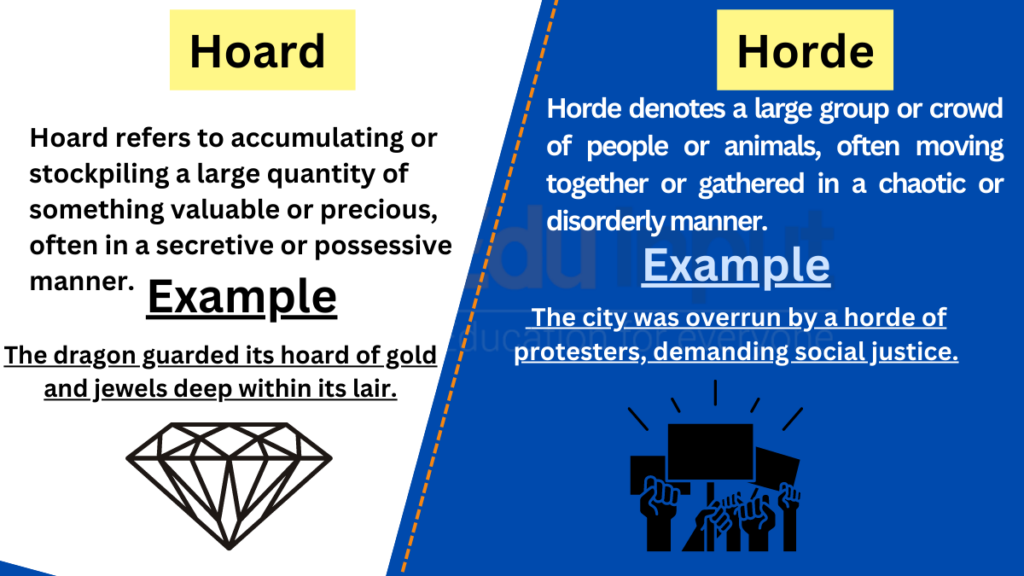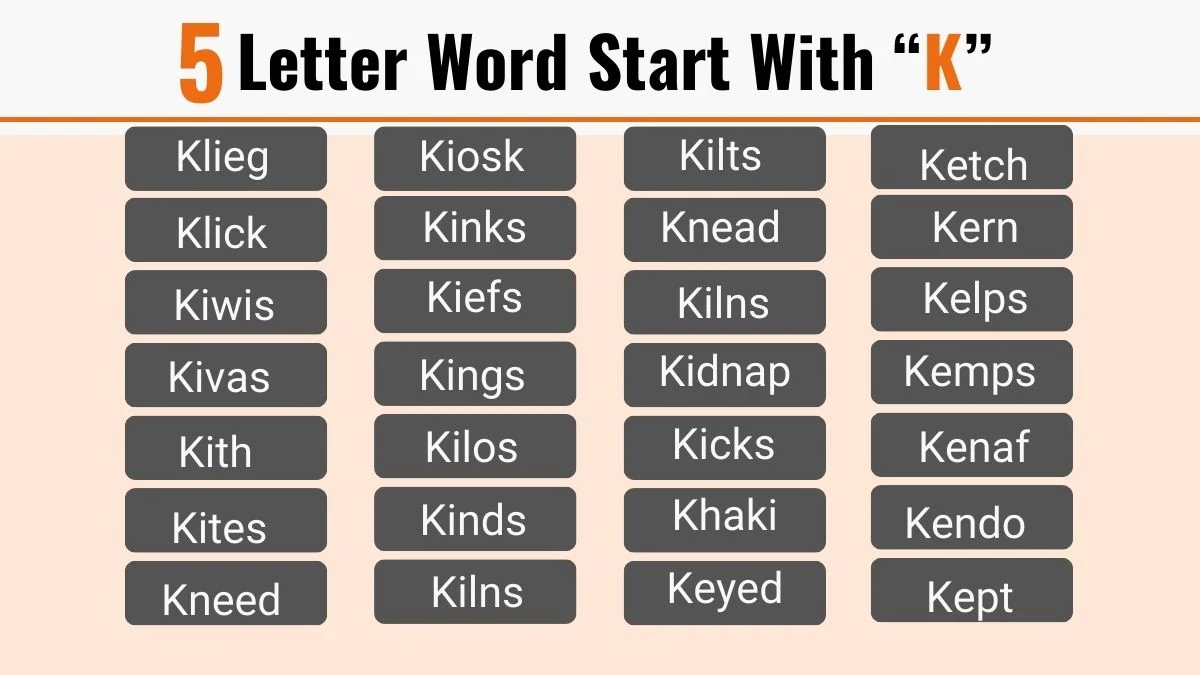Hoard vs. Horde-Difference between and Examples
In the English language, there are words that sound similar but have distinct meanings, causing confusion for many. “Hoard” and “horde” are two such words that often perplex language learners. This article will delve into the differences between “hoard” and “horde,” exploring their definitions, usage, and contextual nuances. By gaining a deeper understanding of these words, we can effectively express ourselves and avoid miscommunication. Join us as we embark on a linguistic journey to unravel the disparities between “hoard” and “horde.”

Meanings and Examples
Hoard meaning
Hoard refers to accumulating or stockpiling a large quantity of something valuable or precious, often in a secretive or possessive manner.
Hoard Examples
a) The dragon guarded its hoard of gold and jewels deep within its lair.
b) She had a hoard of vintage comic books hidden away in her attic.
c) He was known to hoard knowledge, keeping his groundbreaking research to himself.
Horde meaning
Horde denotes a large group or crowd of people or animals, often moving together or gathered in a chaotic or disorderly manner.
Horde Examples
a) A horde of enthusiastic fans descended upon the concert venue, eagerly awaiting their favorite band.
b) The locust horde swept through the fields, devouring crops in its path.
c) The city was overrun by a horde of protesters, demanding social justice.
Difference between Hoard and Horde
| Hoard | Horde | |
| Meaning | Accumulating or stockpiling valuable items | Large groups or a crowd of people or animals |
| Example | “The dragon guarded its hoard of gold and jewels.” | “A horde of enthusiastic fans descended upon the concert venue.” |
| Usage | Describing the act of collecting or accumulating possessions | Referring to a large, disorderly group of individuals or animals |
| Context | Treasures, valuables, secretive collecting | Crowds, mobs, mass movements |
Usage in a Paragraph
Imagine stumbling upon a hidden cave deep in the mountains, where a legendary dragon guards its hoard of glittering treasures. The dragon jealously keeps its accumulated gold, jewels, and priceless artifacts, fiercely protecting them from intruders. The hoard represents an immense wealth amassed over centuries, a testament to the dragon’s possessiveness and desire to keep its treasures secure.
Now, let’s shift our focus to a bustling city street during a highly anticipated event. A horde of passionate fans gathers around the concert venue, eagerly awaiting the arrival of their favorite band. The air is filled with excitement and anticipation as the crowd swells in size, their collective energy palpable. This disorderly horde represents the passion and enthusiasm shared by a multitude of individuals, united by their love for the music and the shared experience of a live performance.
By understanding the distinctions between “hoard” and “horde,” we can employ these words with precision, avoiding confusion and conveying our thoughts accurately. “Hoard” pertains to the accumulation or stockpiling of valuable possessions, often with a secretive or possessive connotation. On the other hand, “horde” describes a large, disorderly group of people or animals, often characterized by chaos or a lack of organization. By using these words appropriately, we can articulate the act of collecting cherished items or depict vibrant crowds teeming with energy. Let us embrace the power of language to express the concepts of accumulation and collective presence effectively.







Leave a Reply